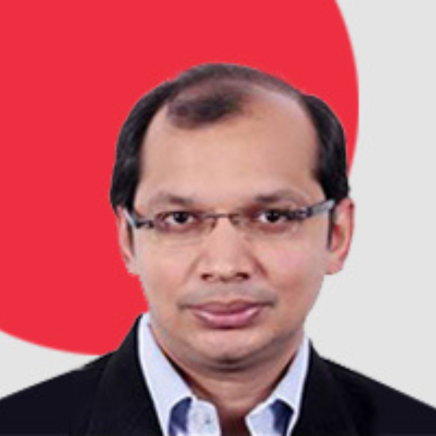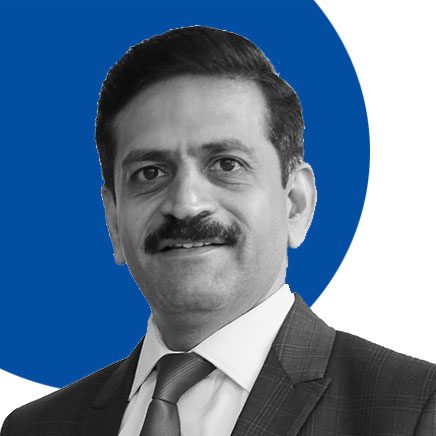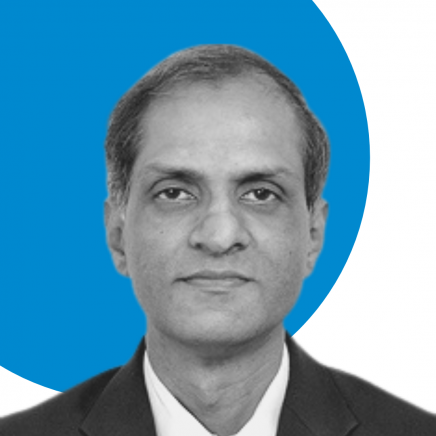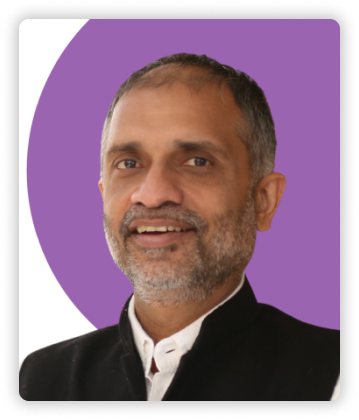About the organization
Vision: A world in which women and children can realize their potential and drive positive change in their communities.
Mission: We work for sustainable change in women and children from marginalized communities by providing them with education, life skills, and vocational opportunities.
Guiding principles: Solidarity, learning, honesty, and freedom Nurturing skills, expertise, and professional development of women and youth in the communities is a key component of our strategy. With these women and youth as the foundation, our Mission is to build sustainable, community-based models, based on the principles of equity and rights. We have addressed key developmental concerns through these models such as (i) mainstreaming adolescent girls into higher education, (ii) motivating and training young women to find their vocation in the social sector (iii) enriching the educational experience for school-going children, and (iv) prevention of disability, with the rehabilitation and education of disabled children and adolescents.
Location of work
Industrial Suburbs in slum of Kurla-Ghatkopar (West), in L and N wards of Mumbai city.
Project update
Sangharsh Center was initiated at Kurla Jari Mari in 2003, after a community survey, which revealed children with disabilities as an invisible constituency. They had no access to rehabilitative services, and many remained in their homes as their families were not aware of how to manage them and didn’t have the resources. Sangharsh operated as a daycare center initially to get the families of CWD connected to rehabilitation services and reintegrate them into mainstream institutions. The staff handling the center were young women who were from the community and part of the Sahyog non-formal school. As years progressed, there was a need to equip the staff with more specialized skills, so they underwent the Child Aid Development Course offered by Ummeed Child Development Centre for Community-Based organizations.
Services provided at Sangharsh include remedial and therapeutic support, community outreach, reintegration, advocacy, networking, home-based care, disability awareness, and sensitization. In 2011, Narayan Nagar Ghatkopar was identified as a new site to initiate the Sangharsh program, the team conducted a community survey and began identifying children with disabilities that needed rehabilitative services. The center at Kurla Jarimari was closed towards the end of the year and the children were rehabilitated in mainstream schools however homecare/therapeutic /medical support continued to be provided to the children with severe disabilities. Ghatkopar Centre began operating in 2012. Currently, the program is located in the suburban slums of Kurla and Ghatkopar in Mumbai.
Learning
The shift to the new location has opened opportunities to work with different community stakeholders, more disabilities, and different age groups of PWD. While there is a genuine interest in extending support to all it is also important to structure the intervention to provide a more realistic and holistic intervention to the beneficiaries.
With a large number of beneficiaries, a need was felt to increase the human resources by hiring para workers and also identifying volunteers in the community to provide additional support to the families for home-based care. This also brought the need to strengthen the skills of the team members to give them a better understanding of working with different disabilities and be able to provide individualized intervention.
There was a difficulty in finding donors to help support the school and medical needs of the children. There is a need to motivate caregivers to become financially secure. This would greatly enable them to address basic needs.
Getting a team of consulting doctors. therapist, purchase of therapy equipment, and having an educational consultant with regular guidance and mentoring of the team has further facilitated the intervention thereby emphasizing the importance of having a multidisciplinary team under one roof.
Engagement of caregivers not only in regular PTA meetings at the center but also through other avenues like including them in gender meetings, enrolling them in vocational programs, formation of support groups, and taking them for exposure visits have strengthened the rapport with the teachers and created a partnership bond that has helped in motivating them to get more involved in their child’s intervention, this can be seen in the regularity in the therapy visits, doctor consultations, processing UDID card, home program videos, etc.
There are conscious efforts made to connect beneficiaries across other Sahyog’s community programs with each other through common platforms of vocational training, scholarships, disability awareness sessions, and volunteering opportunities. This has helped in visibility which has also led to an increase in the number of children enrolled at Sangharsh and it has also led to collaboration with local SHG, Youth Mandals, and Aagwandi.
Challenges
Seeking permissions from CDPO office for sessions with their Anganwadi workers has been challenging due to the officer’s busy schedule and the current strike which has caused a hindrance in proceeding further with the sessions sustaining future collaboration, as once again the permissions will have to be taken again.
Another challenge is addressing the needs of PWDs who are 20 years of age and above. They have mostly completed their education in local government schools that cater to students till they are 18 years. Beyond this age, these young adults end up being at home and are viewed as unproductive by their families. In cases with severe intellectual and locomotor disabilities vocational training and job placements become a challenge. Even the reputed NGOs working in the field of livelihood are unable to find resources for this group. The Sangharsh apprenticeship program is a step to help such PWD to find resources closer to their home. However, the process to garner support for employment and on-the-job training opportunities in the community is slow. For Sangharsh successful intervention of PWD is not only early identification and remediation but also enabling these young adults to become productive members of society.
With the increase in the number of children at the center, the regular outreach in the community has not been regular as the teacher’s work with individual students and groups has increased. Funds for Reintegration of children in special schools has been difficult, we have not been able to identify potential donors.
Plan of action
Para-workers have been enrolled in the Umeed Child Development Centre for CDA course, we are hoping they will be able to independently handle the activities at the Satellite Centres. Sangharsh Teachers will undergo capacity-building training to strengthen remedial teaching activities. Transition of supervisory roles to senior team members of Sangharsh. Structuring the Young Adults program and establishing linkages for employment opportunities. Strengthening the community outreach by hiring staff for this task.
In May, the center-based activities with the children are stopped as many families go to their villages for vacations. This time is used for the review of the program, and planning activities in the coming year. This time is also used for capacity building of the entire team, being a center that handles children with multiple disabilities all the staff members working with children must be acquainted with the disabilities and be able to work with the children. The training usually lasts for a few days depending upon the need highlighted to the resource organization.
We encourage all staff members to be included in the capacity-building workshops to avoid gaps in the transfer of knowledge. The work with the Alumni parents has also begun. It has highlighted the need to build the capacities of the students in a way that they can compete in the mainstream. Some of these children also have behavioral problems of hyperactivity and attention making it difficult for their teachers to manage in classrooms. Thus, we are looking at the following areas this year to build the capacities of our teachers.

Sachin Bansal heads finance function for Wipro Consumer Care & Lighting in India and South Asia.
He moved to Wipro Consumer Care in 2022 and prior to that was the head of finance of Wipro Infrastructure Engineering (WIN). He joined WIN in 2007 and over the last 15 years has essayed several roles including Plant Finance, India Hydraulic Business Finance, Global Operations Finance and Mergers & Acquisitions.
A qualified Chartered Accountant and a Black Belt in Six Sigma, Sachin has led several successful initiatives to streamline and strengthen the Finance function. As part of the leadership team of WIN, he played a pivotal role in driving profitable growth with improved focus on ROCE, Productivity and Cost Optimization.

Isaac George has held several positions at Wipro across Sales & Marketing, Consulting, and IT Operations for over two decades. Since 2014, he has been leading People Function and Employee Relations at Wipro Infrastructure Engineering. Isaac also heads the group’s social initiatives efforts and works towards creating an inclusive environment for Persons with Disabilities.

Samir Gadgil is the Head HR for the Chief Growth Office and all Corporate Functions at Wipro. He is also Wipro Cares’ Pune Location Head.
Previously, Samir has worked as Head – HR for Digital Operations & Platforms and managed multiple initiatives under HR and People Supply Chain Functions, including Talent Acquisition, Talent Transformation, Workforce Management, Facilities & Transport.
A seasoned professional, Samir has also served as the Global Head- Compensation, and Benefits at Wipro and worked with best-in-class Manufacturing, Consulting, Financial, and IT Service Companies in a career spanning over two decades.

Narayan P S is the Global Head of Sustainability and Social Initiatives at Wipro Ltd. He is also the Managing Trustee at Wipro Foundation, the social initiatives arm of Wipro Ltd. He has been instrumental in the creation of Wipro’s sustainability initiative and has stewarded it since its inception in early 2008. Wipro’s sustainability charter is built on the core principle that business and social purpose must reinforce each other in addressing several key challenges around ecology and the environment, education, and communities.
In addition, Narayan is Visiting Faculty at the Azim Premji University where he teaches ‘Ecology and Development’ in the MA ( Development) program. He is also a Visiting Faculty at Xavier School of Sustainability, Xavier University, Bhubaneswar. Narayan also conducts learning sessions regularly on Sustainability at IIM Bangalore and IIM Indore.
Narayan’s interests center around (i) the broad interplay between Ecology, Economics, and Humanities (ii) the role of the business sector as a change agent in sustainable development (iii) Sustainability in Education, and (iv) Sustainable and Inclusive Cities.
Prior to the current role, Narayan was the Global Head of Information Systems for Wipro’s IT business, when he was chosen as one of CIO’s global 25 Ones to Watch.
A graduate in Electrical Engineering with a post-graduation in Management, Narayan has more than twenty-seven years of cross-disciplinary experience in Business Development, Enterprise Systems, and Corporate Sustainability. He is also involved in sustainability advocacy as a member of several industry forums on sustainability. He is currently the Chairman of the CII-GBC Greenco forum for Bangalore.
To effectively execute projects in our chosen areas of work, we aim to partner with credible organizations that comply with the criteria mentioned below:

Vikrant has recently joined to lead the human resources function for Wipro Enterprises which includes Wipro Infrastructure Engineering (WIN) and Wipro Consumer Care & Lighting businesses.
Vikrant comes with 25 years of diverse global leadership experience in Strategic Talent Management, Mergers & Acquisitions, Organization Design, Cultural Transformation & Change Management, D&I, and Leadership Coaching & Development across Services, Manufacturing, Retail and Technology industries. Besides Human Resources, Vikrant has also led roles across Finance & Audit.
With a career spanning L&T, GE Healthcare, Nike, Accenture, HCL, and Harman International, Vikrant has a distinguished track record and is an alumnus of the Symbiosis Institute of Business Management, Pune.

Aparna C. Iyer is Wipro’s Chief Financial Officer.
Aparna joined Wipro in 2003 and over the years has held several finance roles, including Internal Audit, Business Finance, Finance Planning and Analysis, Corporate Treasury, and Investor Relations (IR).
Most recently, Aparna was Senior Vice President and CFO of Wipro FullStride Cloud, leading finance operations for one Wipro’s fastest growing global business lines.
Prior to taking over as CFO of Wipro FullStride Cloud, Aparna was the Corporate Treasurer and Head of Investor Relations for Wipro Limited. As a part of that role, she was responsible for building and executing forex risk management framework, investment of surplus cash, working capital management, customer credit risk evaluation, driving capital allocation decisions, managing balance sheet exposure as well as investor and analyst relationships.
As the Head of Treasury & IR, Aparna devised Wipro’s forex strategy, aiding the operating margin performance of the company, and driving improved predictability.
Aparna is a Chartered Accountant (CA) and was a gold medalist of the CA 2002 batch.

Saurabh Govil is the Chief Human Resources Officer at Wipro, and a member of the Management Team. He leads all Wipro’s HR functions, including talent acquisition, talent engagement, and learning and development programs.
Saurabh has been a HR practitioner for over two decades, and has worked with organizations like ITC and GE. Since joining Wipro in May, 2009, he has been instrumental in transforming the organization. His work with people, processes, and organizational structure over the last three years has contributed significantly to Wipro’s growth, improving operations and introducing many new initiatives.
Saurabh is an alumnus of XLRI, Jamshedpur where he completed his master’s in human resources. He is on the advisory board of SHRM India. Saurabh has been a regular speaker at NASSCOM’s HR summit. He also contributes to NHRDN’s journal as an author.

Anurag Behar is the Chief Sustainability Officer of Wipro Limited & Vice-Chancellor, Azim Premji University.
Anurag is a member of the Committee that has developed India’s National Education Policy (2019), the first comprehensive education policy for the country, since 1986. He has been deeply engaged with efforts to improve education in India, for the past seventeen years.
He has been a vocal advocate for the critical importance of public systems, in particular the public education system. His many years in business have given him an insider’s view of both the possibilities and limits of markets. For the past few years, he has also been engaged with environmental and ecological issues. He writes widely, including a fortnightly column for the national newspapers Mint & Hindustan, and other publications.
Anurag has earlier played leadership roles in business. As the CEO of Wipro Infrastructure Engineering, he led the business from being No. 20 in the world to being the No. 1 in 5 years. He has also been responsible for many corporate functions for Wipro including Brand, Quality, and Innovation. He continues to provide oversight to the social and ecological initiatives of the Wipro Group, as its Chief Sustainability Officer. He is a member of Wipro’s Group Executive Council.
Anurag has served on various boards including that of Wipro GE Healthcare Ltd, The University of Trans-Disciplinary Health Sciences, and of the TERI University. He serves on many government & sector councils, such as MHRD’s EQUIP, the National Mission on Teachers and Teacher Education, the Government of India implementation committee for the Justice Verma Commission, Karnataka Knowledge Commission, and with the CII’s National Climate Change Council.
He has an MBA from XLRI, Jamshedpur, and a BE in Electrical & Electronics Engineering from the National Institute of Technology, Trichy. Both institutions have honored him with their Distinguished Alumnus award. He was elected as a ‘Young Global Leader’, by the World Economic Forum in 2008. He enjoys long-distance running.

Narayan P S is the Global Head of Sustainability and Social Initiatives at Wipro Ltd. He is also the Managing Trustee at Wipro Foundation, the social initiatives arm of Wipro Ltd. He has been instrumental in the creation of Wipro’s sustainability initiative and has stewarded it since its inception in early 2008. Wipro’s sustainability charter is built on the core principle that business and social purpose must reinforce each other in addressing several key challenges around ecology and the environment, education, and communities.
In addition, Narayan is Visiting Faculty at the Azim Premji University where he teaches ‘Ecology and Development’ in the MA ( Development) program. He is also a Visiting Faculty at Xavier School of Sustainability, Xavier University, Bhubaneswar. Narayan also conducts learning sessions regularly on Sustainability at IIM Bangalore and IIM Indore.
Narayan’s interests center around (i) the broad interplay between Ecology, Economics, and Humanities (ii) the role of the business sector as a change agent in sustainable development (iii) Sustainability in Education, and (iv) Sustainable and Inclusive Cities.
Prior to the current role, Narayan was the Global Head of Information Systems for Wipro’s IT business, when he was chosen as one of CIO’s global 25 Ones to Watch.
A graduate in Electrical Engineering with a post-graduation in Management, Narayan has more than twenty-seven years of cross-disciplinary experience in Business Development, Enterprise Systems, and Corporate Sustainability. He is also involved in sustainability advocacy as a member of several industry forums on sustainability. He is currently the Chairman of the CII-GBC Greenco forum for Bangalore.